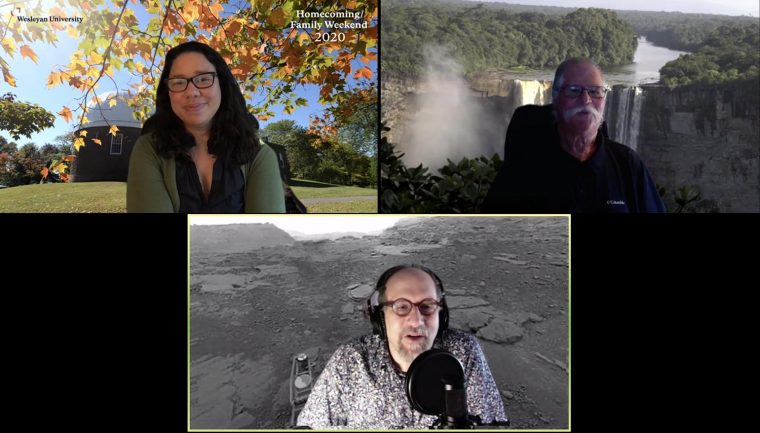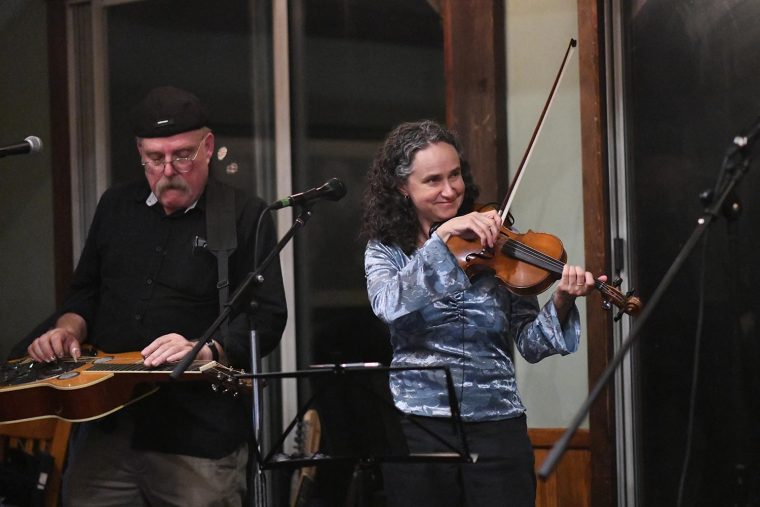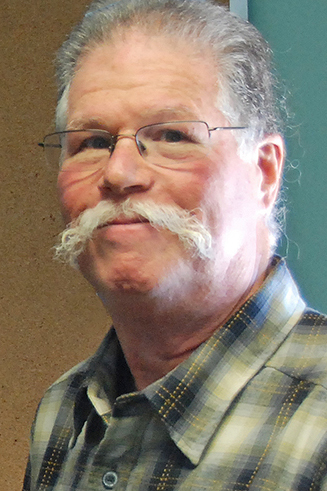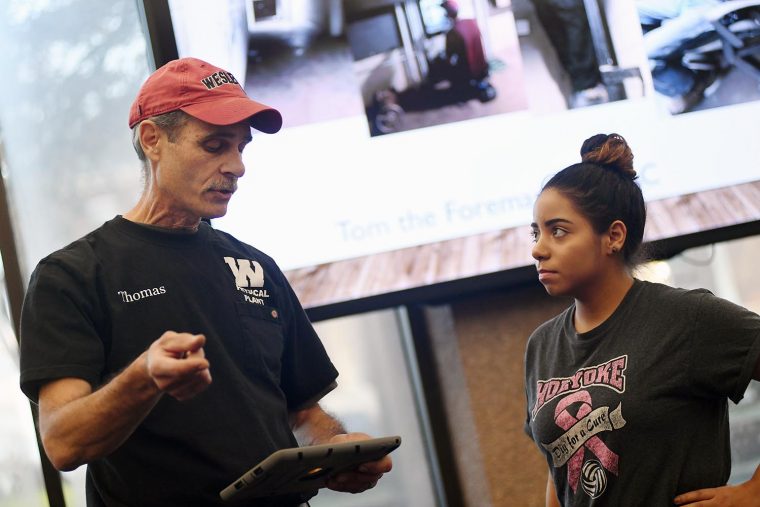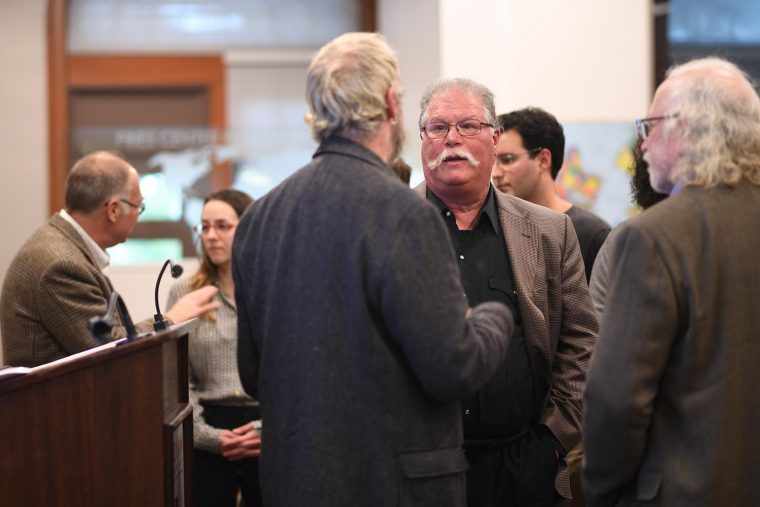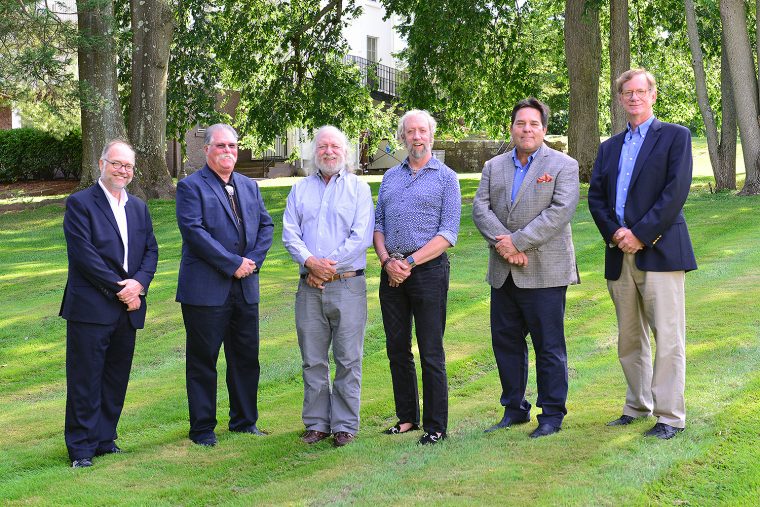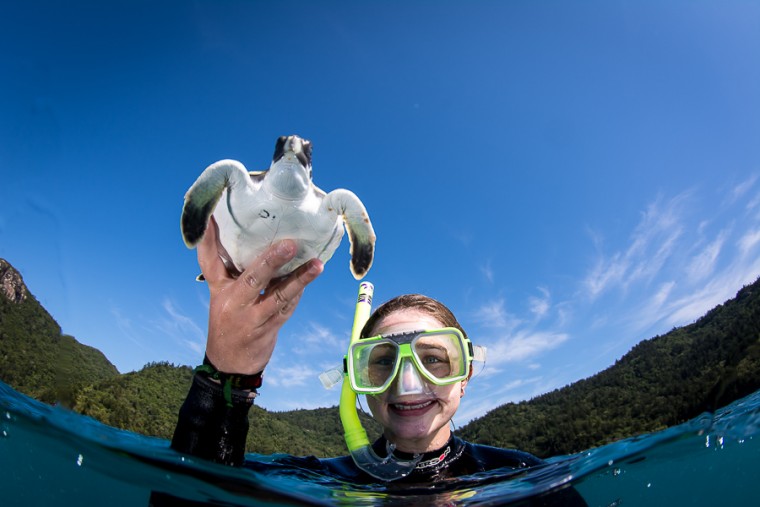The 18th annual "Where on Earth Are We Going?" Symposium of the Robert F. Schumann Institute of the College of the Environment was held on Oct. 16 and 17 in a virtual format as part of Homecoming and Family Weekend events. (more…)
As organisms evolve over time, changes in size—both miniaturization and gigantism—are a major theme. In fish, which are the specialty of Barry Chernoff, the Robert Schumann Professor of Environmental Studies, Professor of Biology and of Earth & Environmental Sciences, miniaturization happens in many lineages, though it’s not very common. Evolutionary biology has long held that this miniaturization is often accompanied by developmental simplification or paedomorphisis (becoming sexually mature while appearing juvenile-like). Last March, just before the pandemic began, Chernoff and students in his Tropical Ecology course (ENVS/Bio/E&ES 306) took a trip to the University of Michigan in Ann Arbor, Mich.,…
In October, President Michael Roth and other Wesleyan faculty and staff traveled to Asia to meet with alumni, parents, prospective families, and others. The trip included visits to Seoul, Beijing, and Taipei. A highlight of the trip was Wesleyan’s second annual Liberal Arts + Sustainable Economic Development Forum, which took place in Beijing on Oct. 19. Last year, Wesleyan held the inaugural Liberal Arts + Forum in Shanghai, which highlighted film education and US-China collaborations. (Read the story here.) Over 100 people attended this year's forum, including prospective students and families, current parents, counselors, and alumni. The day started with…
The Mattabesset String Collective, a five-piece Wesleyan-affiliated acoustic ensemble, performed at a venue in Higganum, Conn., on July 29. The group plays an eclectic mix of bluegrass, blues, folk, mountain, country, and rock, all in a string band style. (Photos by Olivia Drake and Bill Burkhart) (more…)
Although dam removal is an increasingly common stream restoration tool, it may also represent a major disturbance to rivers that can have varied impacts on environmental conditions and aquatic biota. In a paper titled "Dam Removal Effects on Benthic Macroinvertebrate Dynamics: A New England Stream Case Study, five researchers from Wesleyan examined the effects of dam removal on the structure, function, and composition of benthic macroinvertebrate (BMI) communities in a temperate New England stream. The benthic—or "bottom-dwelling”—macroinvertebrates are small aquatic animals that are commonly used to study biological conditions of water bodies. The paper is published in the May 21…
A new species of fish discovered in Brazil was recently named in honor of Wesleyan Professor Barry Chernoff. Scientists encountered the Bryconops chernoffi in Rio Ipixuna—a small tributary of the Rio Maicuru, which feeds into the lower Amazon River in Pará, Brazil. Samples of the fish were collected by researchers on four trips in 2014–15, and in March 2019, Zootaxa released an article describing the new species. Chernoff, the Robert Schumann Professor of Environmental Studies, focuses his research on freshwater fishes in North America and the Neotropical region, primarily those in South America in the Amazon. He's also professor of earth and environmental…
Six students in the Introduction to Environmental Studies course traded their notebooks, backpacks, and pens for wrenches, electronic temperature control meters, and even plungers as part of a special project involving staff from Wesleyan's Physical Plant. Throughout the fall semester, the students partnered up with an electrician, a plumber, material handlers, temperature control mechanics, and others to learn about trades and to form friendships with the staff who keep Wesleyan running behind the scenes. On Nov. 29 the students presented their experiences—through talks, performances, music, and graphics—to fellow classmates and Physical Plant staff. (more…)
Barry Chernoff, director of the College of the Environment, was one of eight scientists recently honored with a new musical composition based upon his research—part of a concert and album titled "The Sound of Science, performed in New York City on Nov. 10. The project aims to build "bridges between the musical and scientific worlds, celebrating their shared culture of inquiry," according to the website. The pieces were written by seven celebrated composers for amplified cello and electronics, and were all recorded and performed by world-renowned cellist Jeffrey Zeigler, longtime member of Kronos Quartet and several other groups. The Grammy…
(more…)
The Robert F. Schumann [’44] Foundation has given Wesleyan $2.5 million to establish the Robert F. Schumann Institute of the College of the Environment (COE). The Institute will integrate approaches to learning, research and communication about environmental issues in ways that extend the COE’s educational programs within and beyond Wesleyan. The Schumann Institute will provide students with life-changing experiences that will develop their abilities to address environmental issues. In order to achieve these goals the Institute will collaborate with or stimulate programs in global studies, civic engagement, arts, environmental (in)justice and sustainability and food security and agriculture. “I’m so pleased…
Chloe Nash ‘16, a double major in biology and environmental studies, contributed to groundbreaking research on the mysterious Flatback sea turtle — a species with only two photographs in the wild, both of the same individual turtle. While studying abroad in Australia last spring, Nash volunteered at James Cook University for a project that involved raising 30 flatbacks from hatchlings and attaching GPS devices to their shells.
The turtles were released in Australia’s Great Barrier Reef and seven are being tracked by satellite. This research is the first time Flatbacks, only found in Australia, have been monitored underwater.


